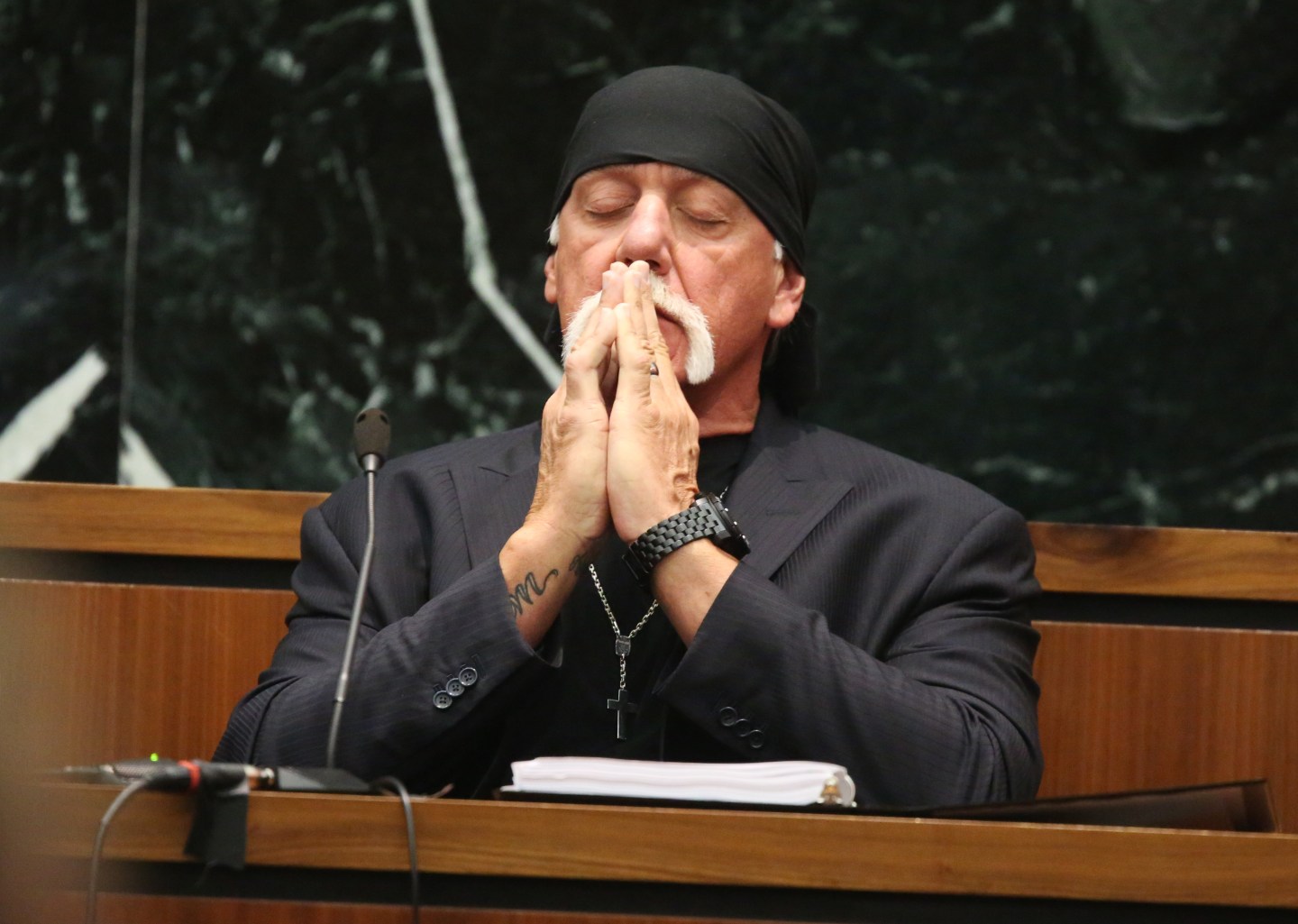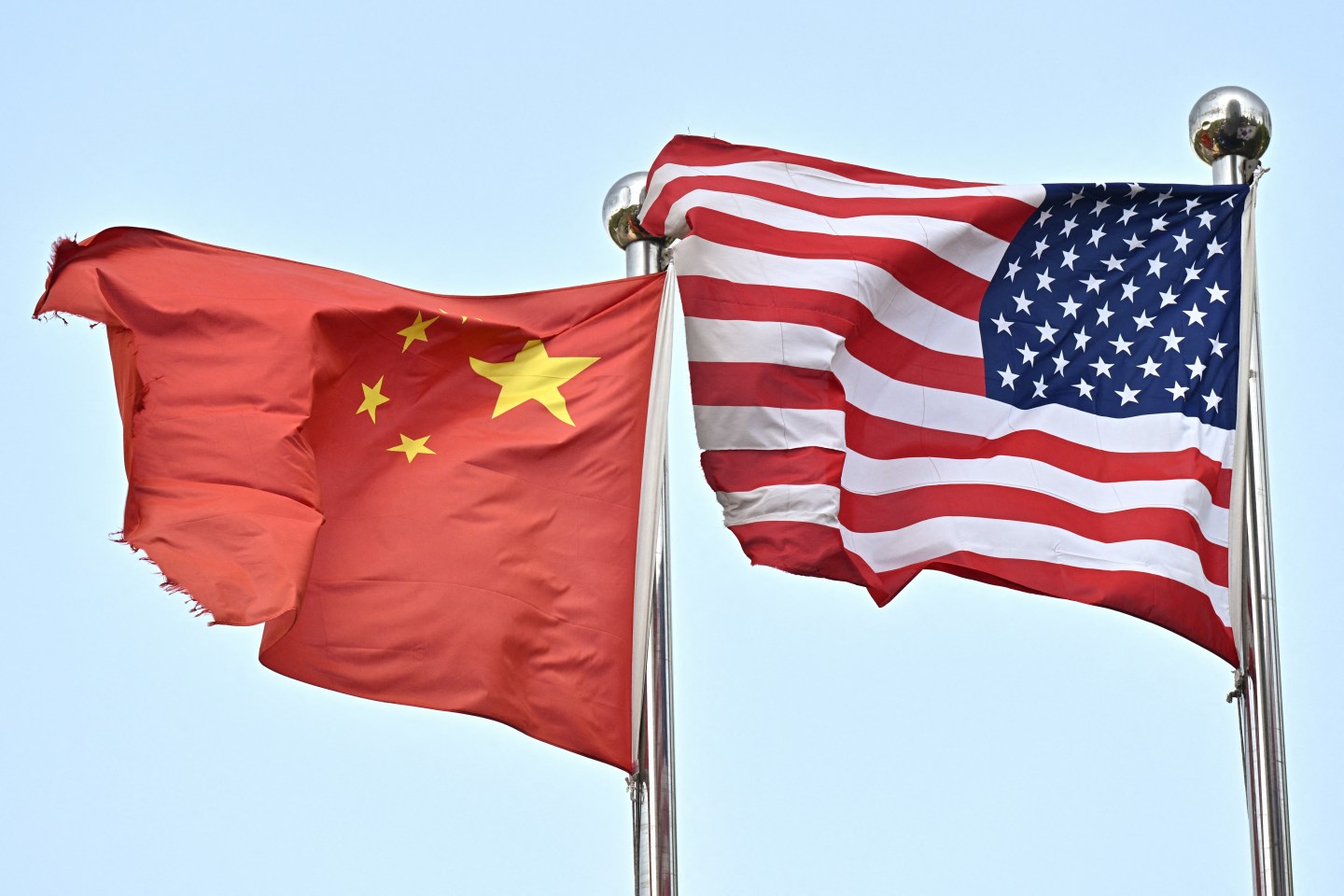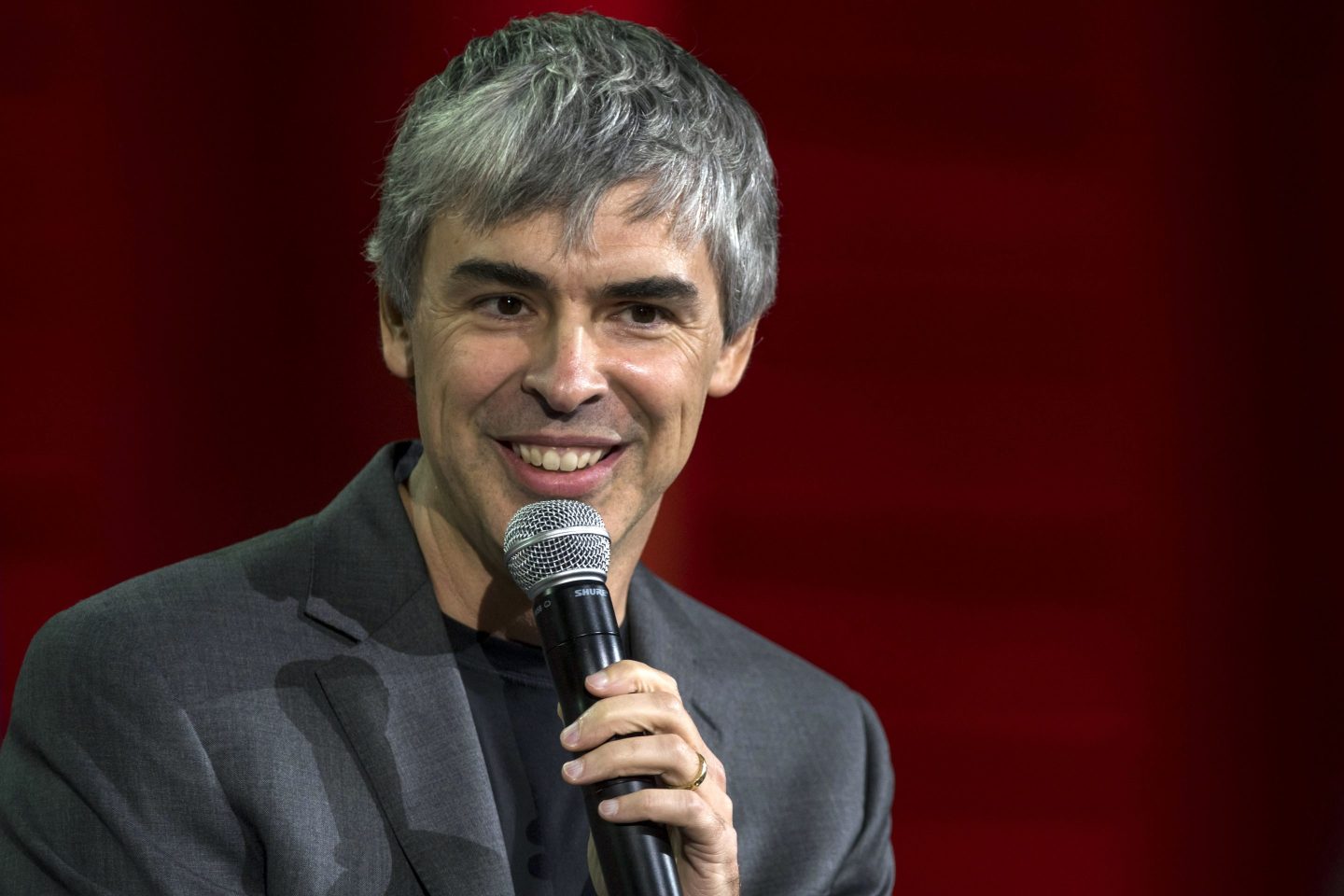You could almost hear the gasps from media-industry insiders last week when a Florida court handed down a mammoth $115 million judgment against Gawker Media in a privacy suit by former wrestling star Hulk Hogan. But despite the headline-grabbing nature of the award, there are plenty of good reasons to believe the decision should be—and likely will be—overturned.
In case you haven’t been following the case closely, Hogan—whose real name is Terry Bollea—sued Gawker for publishing a 90 second clip in 2012 from a video recorded in 2006 of the wrestler having sex with the wife of a friend, a radio DJ known as Bubba the Love Sponge Clem.
Hogan’s legal team argued that the publishing of the clip was an invasion of the wrestler’s privacy, or what’s called a “public statement of private facts,” and that it was an “intentional infliction of emotional distress.” It should be noted that Hogan had tried to sue Gawker over the same video clip several other times in a number of different courts, based on a variety of legal arguments including copyright infringement, but failed every time until now.
In a nutshell, the current case is a fairly straightforward contest between Hulk Hogan’s right to privacy and Gawker’s First Amendment right to publish newsworthy content. And the main reason why the Florida ruling will almost certainly be overturned on appeal is that the second of these principles almost always trumps the first—and there’s no compelling reason to believe that the Hogan case is significantly different from others that have gone before it.
In fact, several other courts—including one at the federal level—have already ruled in Gawker’s favor when it comes to publication of the Hogan video, upholding the idea that the First Amendment protects this kind of newsworthy speech despite any competing claims about privacy.
Sign up for Data Sheet, Fortune’s technology newsletter.
While the size of the jury award has gotten a lot of attention (the court tacked on another $25 million in punitive damages earlier this week, part of which is to be paid by Gawker founder Nick Denton and writer AJ Dilaurio personally), the legal reality is that juries are notoriously prone to award huge sums based on questionable reasoning. And such awards are often set aside a short time later.
As with so many First Amendment cases, there’s no question that the Gawker story is unpleasant and possibly even offensive, and certainly distasteful in a variety of ways. But the test of a free speech standard isn’t that it protects speech everyone agrees with—it’s that it protects a media outlet’s right to publish offensive or unsavory or distasteful speech as well.
So the classic 1988 case involving Larry Flynt, publisher of the porn magazine Hustler, found that the publication was ultimately protected by the First Amendment even though its satirical piece on evangelical preacher Jerry Falwell was offensive by virtually any public standard.
In another case that involved a sex tape—one made by actress Pamela Anderson and her then-husband, musician Tommy Lee—a district court found that Penthouse magazine’s right to publish a photo taken from the video outweighed any right to privacy that the two celebrities had. This is perhaps the most closely comparable case to the Hogan lawsuit, but the Florida jury came to the exact opposite conclusion.
As Harvard law professor Noah Feldman pointed out in a recent piece for Bloomberg, a public figure like Hulk Hogan is assumed to have a somewhat more restricted right to privacy than a non-celebrity, thanks in large part to the Supreme Court’s decision in New York Times vs Sullivan. And whatever protection the wrestler might have had was likely watered down even further by the fact that Hogan routinely talked about his sex life on talk shows. Said Feldman:
The bottom line is simple: Hogan is a public figure who discusses his sexual prowess on Howard Stern’s radio show and more or less pre-promoted the sex tape by talking about it on the gossip site TMZ. Gawker’s constitutional right to publish content the public wants to consume outweighs what little privacy interests a public figure like Hogan may derive from state law.
In decisions involving “publication of private facts” laws, courts have found that the right to privacy is decreased when an individual “voluntarily assumes a position of public notoriety,” which seems like a pretty good description of Hogan’s behavior. So even without an explicit appeal to the protection of the First Amendment, the Florida court likely erred by giving too much weight to Hogan’s right to privacy.
Hulk Hogan wins lawsuit against Gawker Media
On top of all that, as Gawker’s legal counsel Heather Dietrick has pointed out since the award was handed down, the Florida jury didn’t have all of the necessary facts at its disposal. Among other things, it was not aware of testimony that Hogan and Clem gave in a separate case involving the sex tape that was launched by the FBI—testimony that contradicts what both said during the most recent trial.
For example, while the Florida jury heard that Hogan was unaware that he was being filmed having sex with Clem’s wife, Clem told the FBI that the wrestler was well aware that a camera was filming. Clem and Hogan even talked about what might happen if the tape got out.
Whether we (or the members of a Florida jury) think that a clip from an aging wrestler’s sex tape is something worth watching isn’t the point in the Hogan case. The real point is whether Gawker’s First Amendment right to publish newsworthy content outweighs whatever personal right to privacy the wrestler has. And there seems to be little doubt that it does. A jury may have been swayed by their feelings for Hogan, but an appeals court is unlikely to make that mistake.












